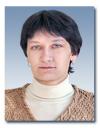1. Palamarchuk O. T. Obrazovanie v tiskah reform // Jekonomika. Pravo. Pechat'. Vestnik KSJeI. — 2014. — № 3–4 (6364). — P. 205–211.
2. Majorova N. V. Protivorechija EGJe i razvitie sistemy obrazovanija // Fundamental'nye i prikladnye issledovanija v sovremennom mire. — 2014. —T. 2. — № 7. — P. 58–65.
3. Nasadkina O. Ju., Ruzanova N. S. IAIS upravlenija vuzom kak informacionno-tehnologicheskaja osnova povyshenija kachestva podgotovki specialistov // Novye informacionnye tehnologii i menedzhment kachestva (NIT&QM'2012). Doklady mezhdunarodnoj nauchnoj konferencii. — Moskva : FGAU GNII ITT «Informika», 2012. — P. 19–21.
4. Surovcova T. G., Shhegoleva L. V. Issledovanie zavisimosti uspevaemosti studentov po matematicheskim disciplinam ot rezul'tatov EGJe po matematike [Jelektronnyj resurs] // «Universitety v obrazovatel'nom prostranstve regiona: opyt, tradicii i innovacii» : Materialy nauchno-metodicheskoj konferencii (22-23 November 2012). Ch. II (L-Ja) / PetrGU. — Petrozavodsk, 2012. — P. 236–238. — URL: http://petrsu.ru/files/2012/11/f7109_10.pdf (Accessed on 24 January 2013). — ISBN 978-5-8021-1581-7.
5. Havenson, T. E., Solov'eva, A. A. Svjaz' rezul'tatov Edinogo gosudarstvennogo jekzamena i uspevaemosti v vuze // Voprosy obrazovanija. — 2014. — №1. — P. 176–199.
6. Zamkov O. O., Pereseckij A. A. EGJe i akademicheskie uspehi studentov bakalavriata MIJeF NIU VShJe // Prikladnaja jekonometrika. — 2013. — № 30(2). — P. 93–114.
7. Pol'din, O. V. Prognozirovanie uspevaemosti v vuze po rezul'tatam EGJe // Prikladnaja jekonometrika. — 2011. — № 1(21). — P. 56–69.













